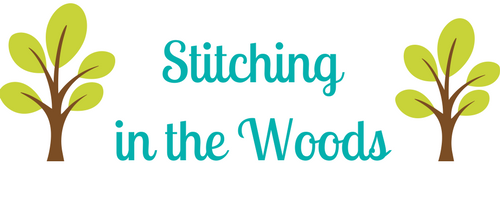On August 20th I had the privilege of taking a class taught by Michael Fortune called Photographing Your Work. It was a one-day class at Marc Adams School of Woodworking. I took the class to be better prepared to take nice pictures of Buddy’s work in the shop. I think the principles taught can be applied to fiber crafts as well. In this post I will be talking about my experience in the class and how it has affected my photography skills, not the content itself.
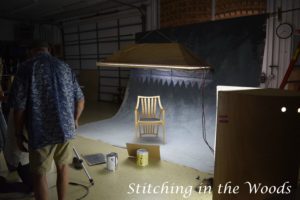
Why I took the class
I’ve had a budding interest in photography that got a boost this year when we made an investment in a DSLR camera. I’ve been interested in learning more about photography so I did what I always do, buy books about it. I’m still digging through those to try to learn the technical aspects of photography.
Since we bought the camera mostly so I could take better pictures for my blog and the business, I have been trying to learn ways to take better pictures for those purposes. My husband has taken classes for several years at Marc Adams so I’m familiar with the school. I decided to take the plunge and sign up for the Michael Fortune photography class they offer. As background, Michael Fortune is not a professional photographer and he doesn’t claim to be. He is, however, a world-renowned woodworker that takes most of his own photographs including ones that end up in publications like Fine Woodworking.
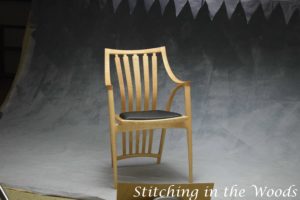
What I got out of the class
In the class we first sat down to go over the tip sheet Michael had written out for us. There was a lot of information presented in a short amount of time. Even though I’ve become somewhat familiar with cameras I picked up a lot of new knowledge.
After a nice lunch we analyzed some photos of Michael’s and then it was time for the fun part, taking pictures. Michael had a set-up that mimicked his own in his shop near Toronto, Canada. We spent the rest of our time setting up photo shoots and learning how to solve problems. We took pictures of a chair Michael made, a stool the class assistant made, a kids’ stool a student made, a turned bowl that another student made, and tried to take pictures of a pencil and stylus Buddy and I made. Michael’s set-up really wasn’t ideal for the smaller objects and he pointed that out. It is meant for bigger items.
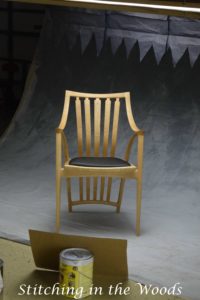
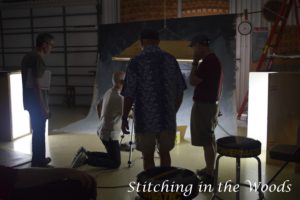
I feel I know a lot more now about how to stage a shot for the best picture of a craft item. I also know a lot more about how to set up a photo booth (of sorts) for the best results. The neat part of Michael’s system is it can be moved out of the way completely until needed. I really like this because it’s already going to be hard finding room for it. The ideal set-up has at least 8 foot ceilings and Buddy’s shop doesn’t. We might build a finishing shed in the future. If we do, that would be a good place to take pictures.
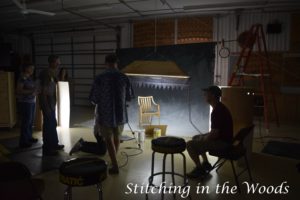
Now I’m ready to use what I’ve learned to start taking better pictures!
FREE Temperature Tracker!!!!
Enter your email address and you'll get a completely free, ready to print temperature tracker to use for your project.
